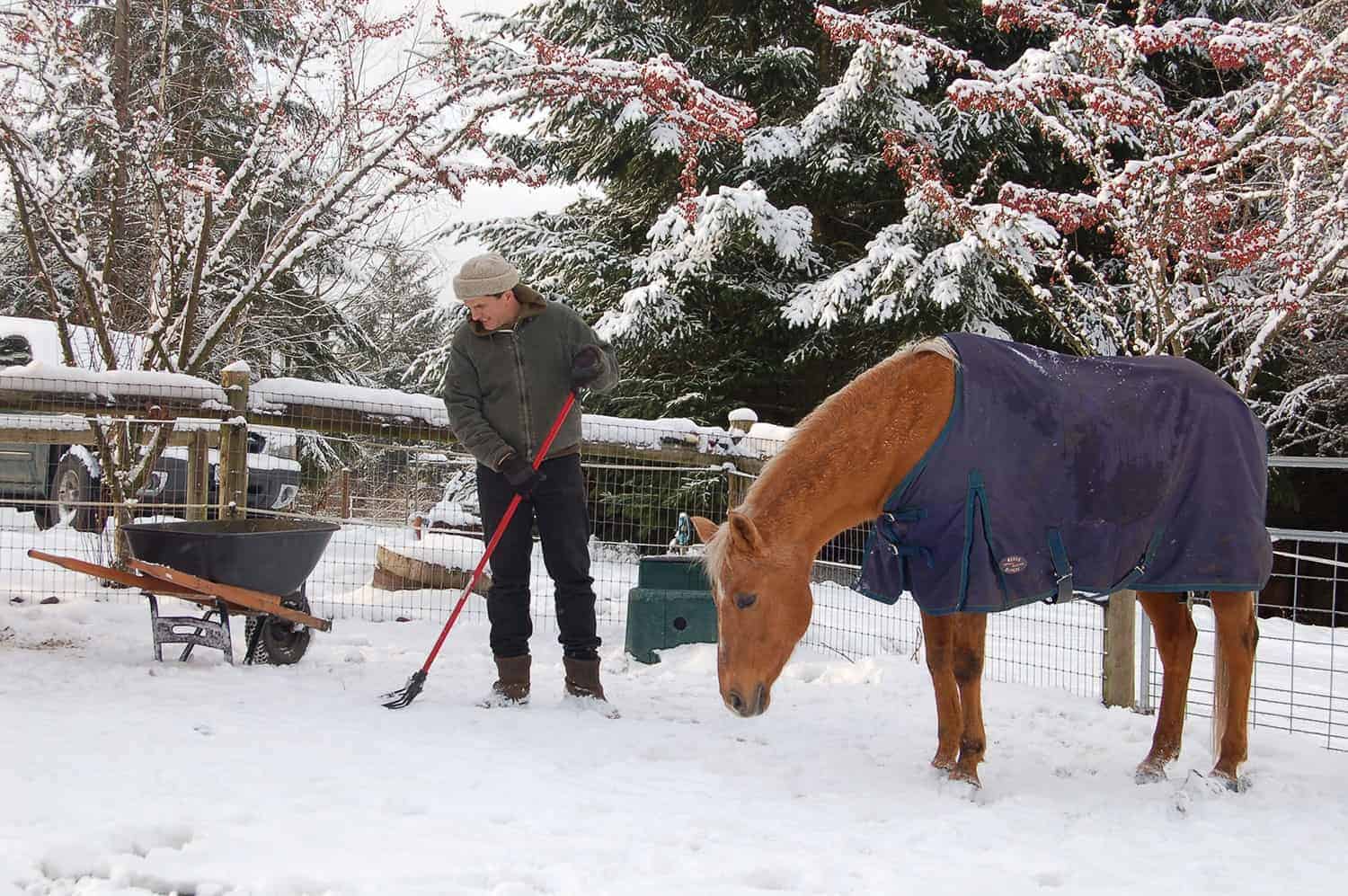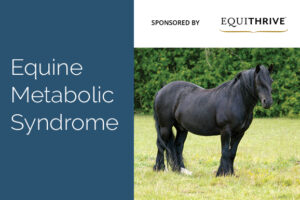Winter Wear for Horse People
Stay warm around the barn during the coldest months by adding these winter-weather essentials to your horse-keeping wardrobe.
- Topics: Media, Slideshow, Winter Care
Share
ADVERTISEMENT
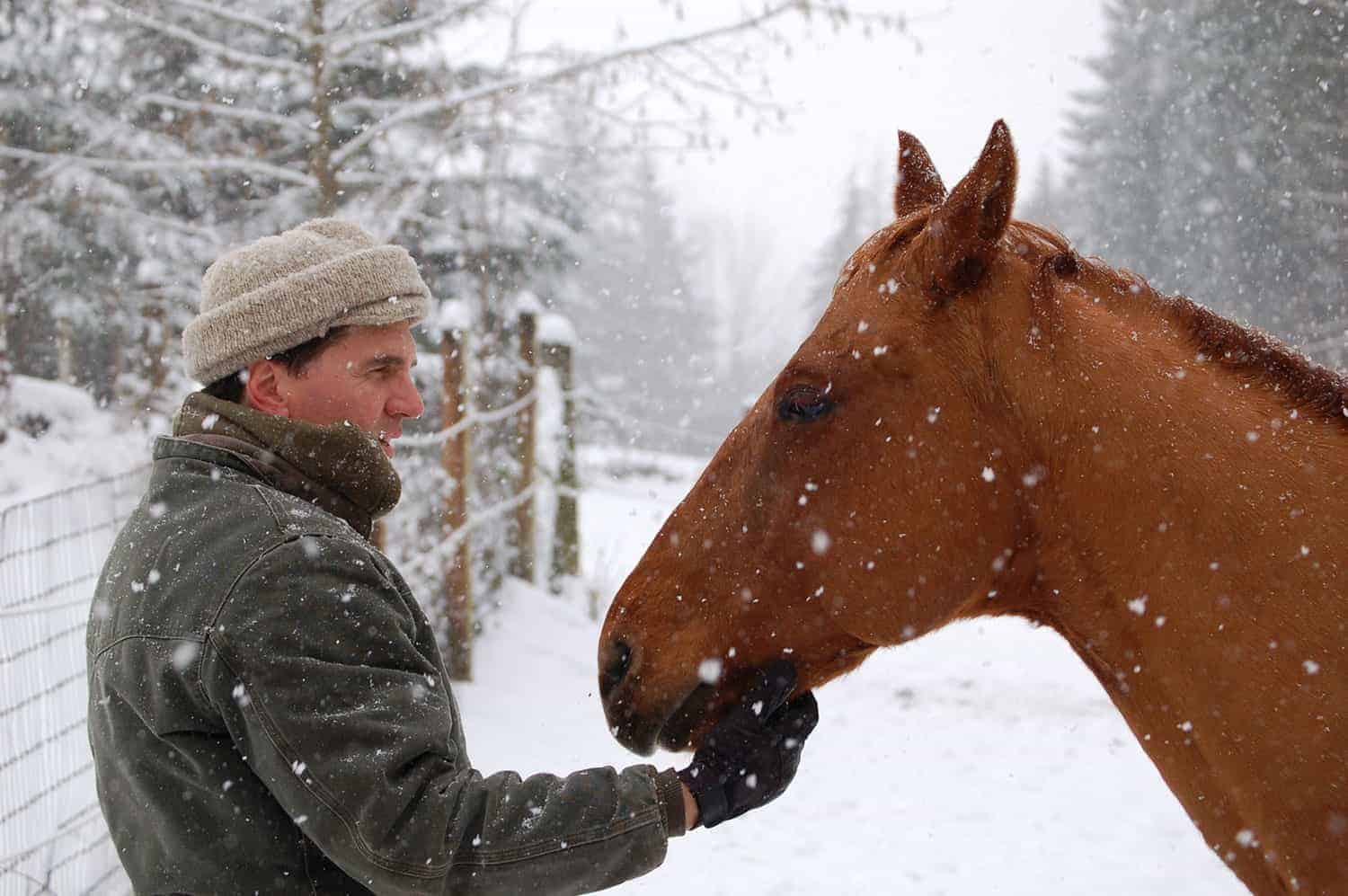
Stay Warm This Winter
If you want to stay active with your horses during the months of potentially inclement weather, begin by planning ahead. Do you ride inside or out? Are you responsible for outdoor chores? Do you trail ride? What you do with your horse determines the types of clothing you'll need. | Photo: Alayne Blickle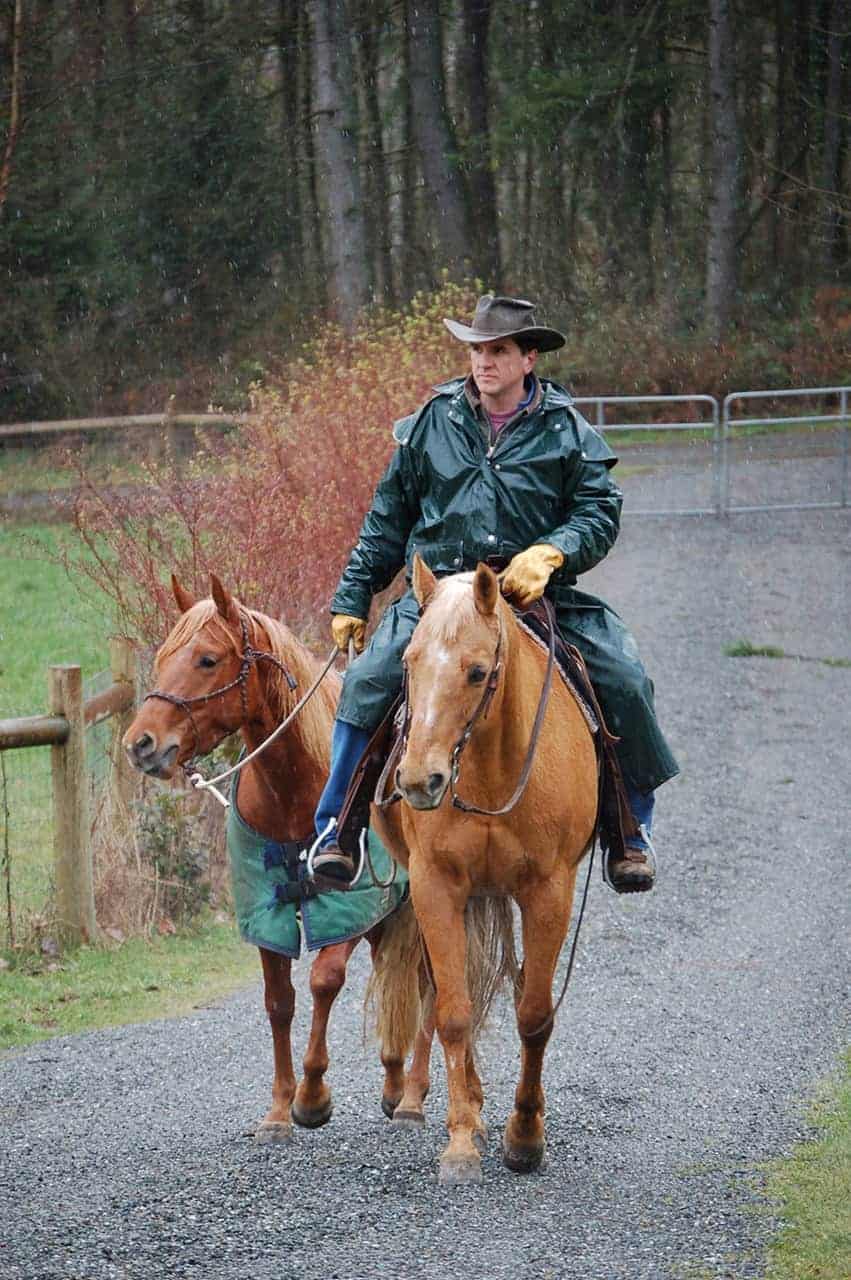
Plan for the Weather in Your Region
What’s the expected winter weather for you in your area? If it’s primarily wet and rainy, and trail riding is your thing, do you own a good rain slicker that fits over your coat and saddle? Water-shedding Australian-style raincoats and hats are a great option for staying dry while riding in these conditions. | Photo: Alayne Blickle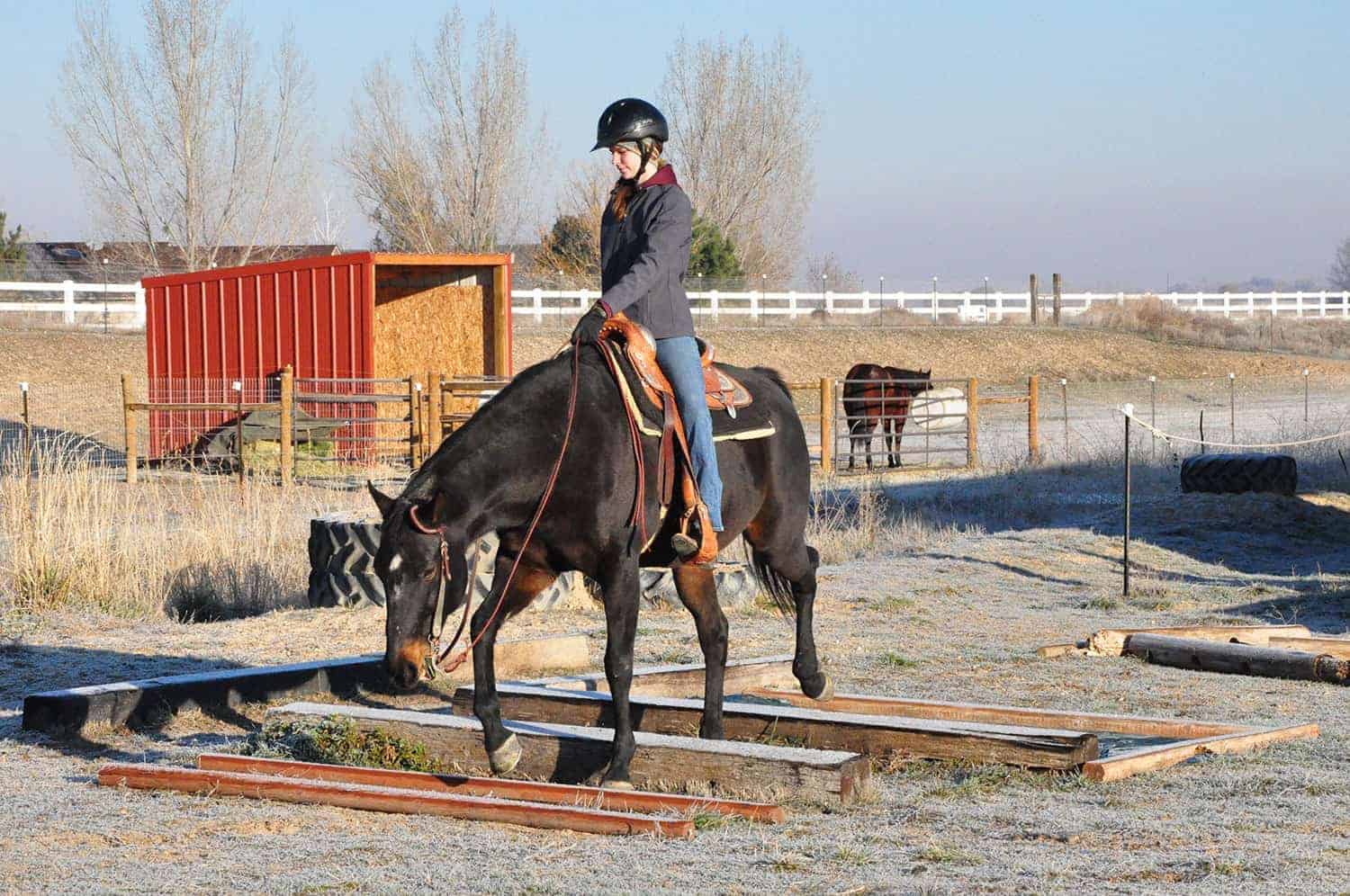
Dress in Layers!
In very cold weather, layering is a tried-and-true way to maximize outdoor comfort. This simple concept allows for quick adjustments based on your activity level and rapid weather changes. | Photo: Alayne Blickle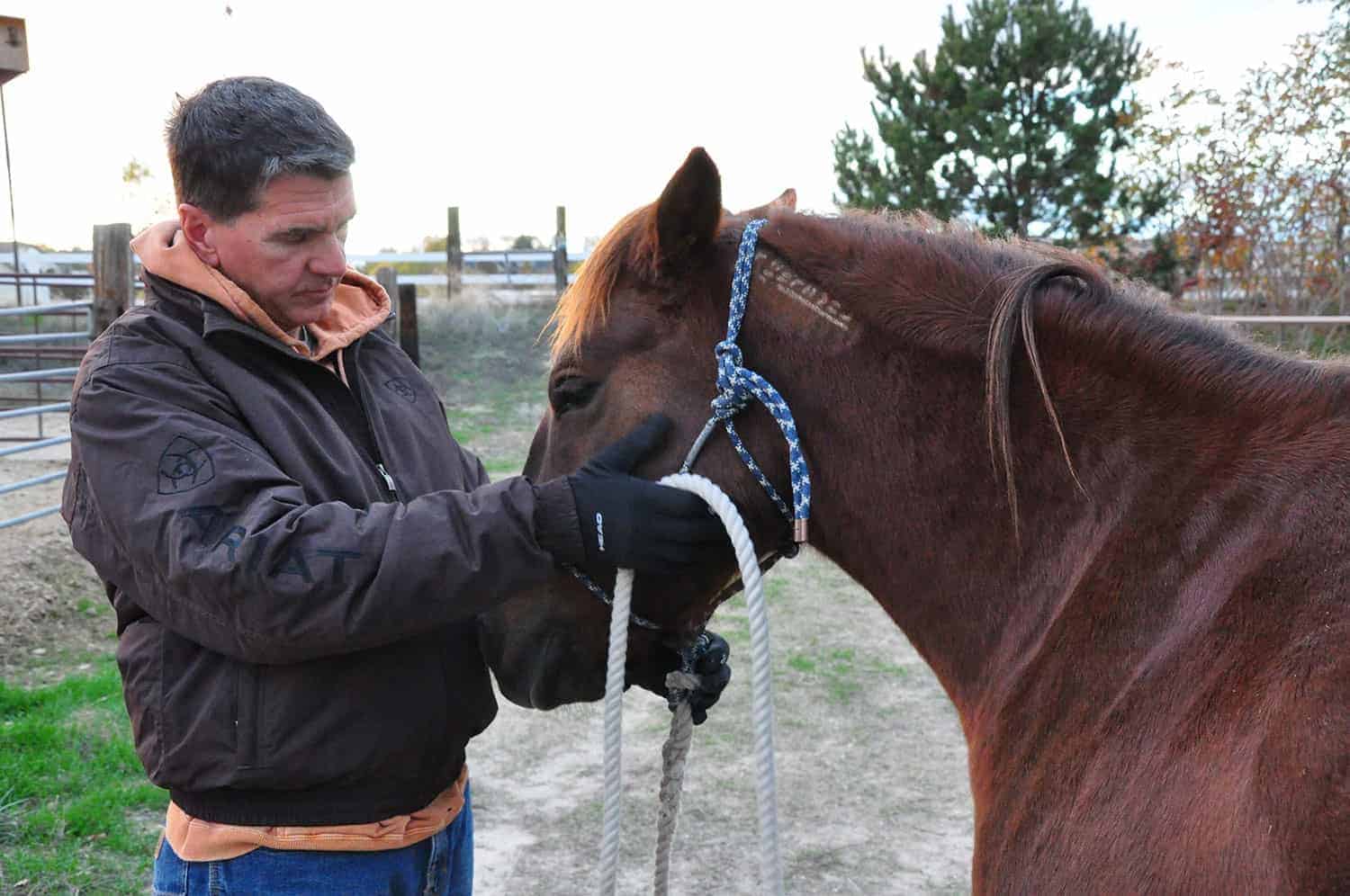
Shell or Outer Layer
A shell, or outer layer, shields you from wind and rain. Select a shell roomy enough to fit easily over other layers without restricting your movement while riding or doing chores. If you're working in wet or snowy weather, look for waterproof fabrics. | Photo: Alayne Blickle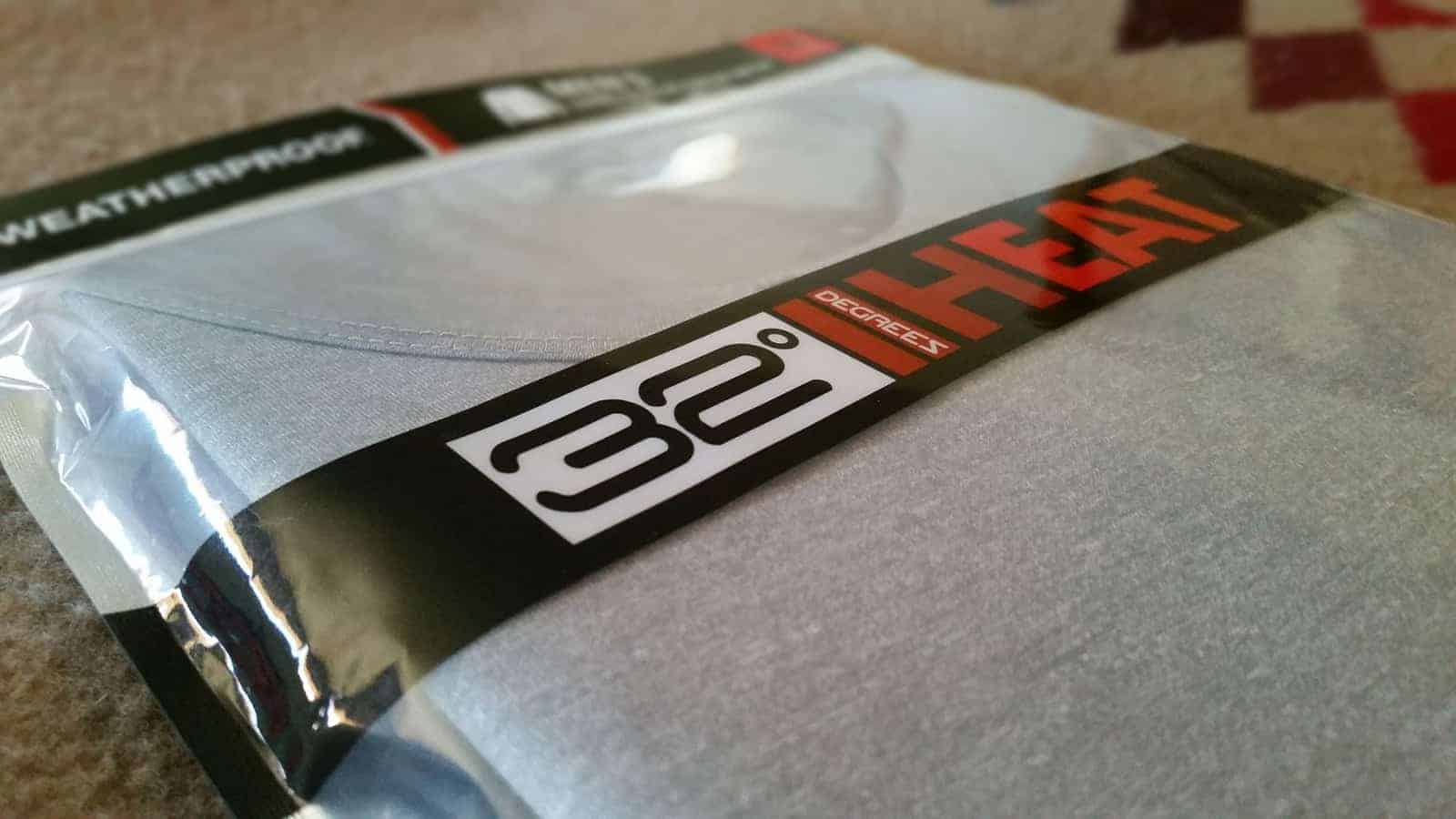
Wear a Technical Fabric Base Layer
A base layer against your skin manages moisture. Choose a fabric that wicks away perspiration, keeping you dry and warm; avoid cotton fabrics, which hold moisture. Lightweight performance fabrics with flat seams will minimize chaffing during riding and barn chores. Look for varieties that are cut longer in the sleeves and body specifically to cover your arms and backside when riding. | Photo: Alayne Blickle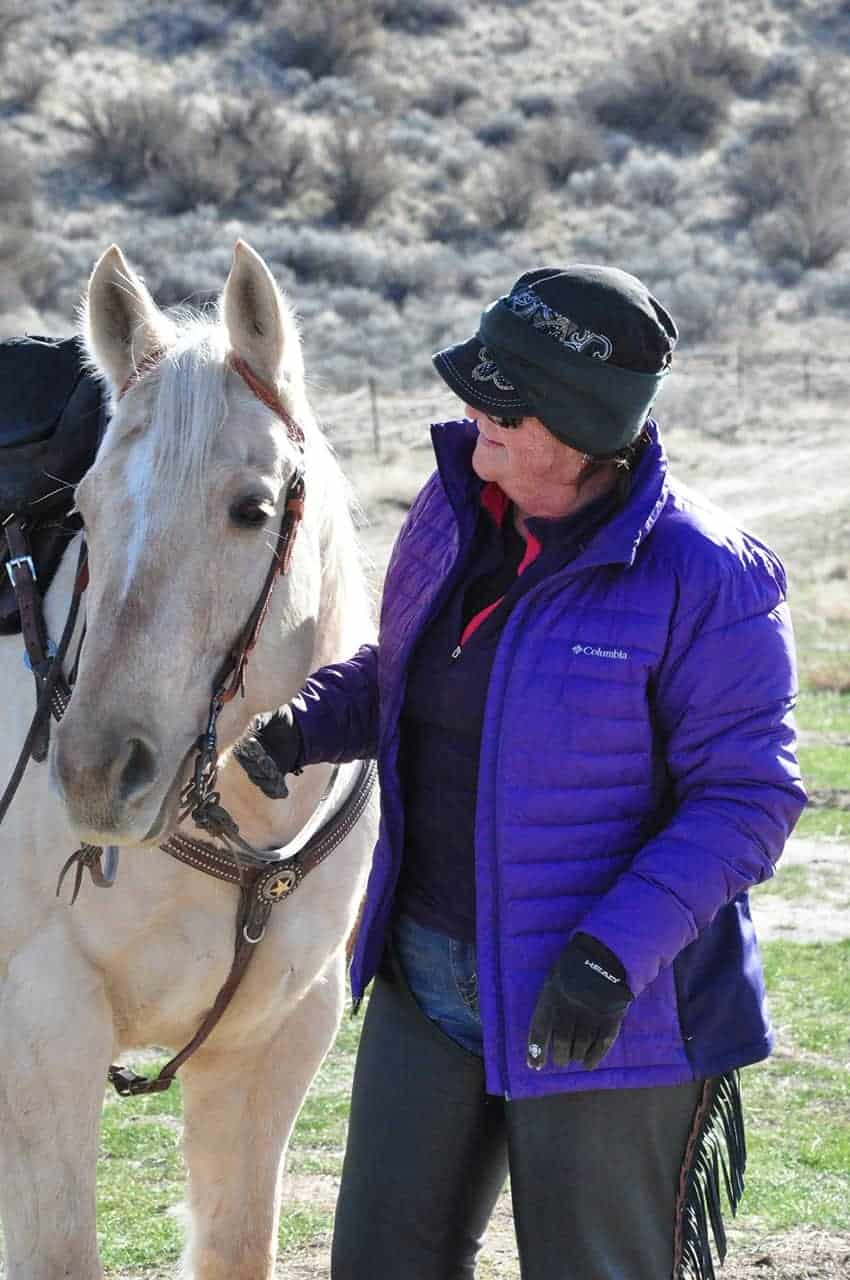
Wear a Warm Insulating Layer Between Your Base and Outer Layers
Down fill is an exceptional insulator and is extremely lightweight. However, if down gets wet, it goes flat and can no longer insulate. Fleece is highly breathable, making it a great choice for riding. However, it's not good in wind, which is why it’s best used as an interior layer under a wind-resistant shell. | Photo: Alayne Blickle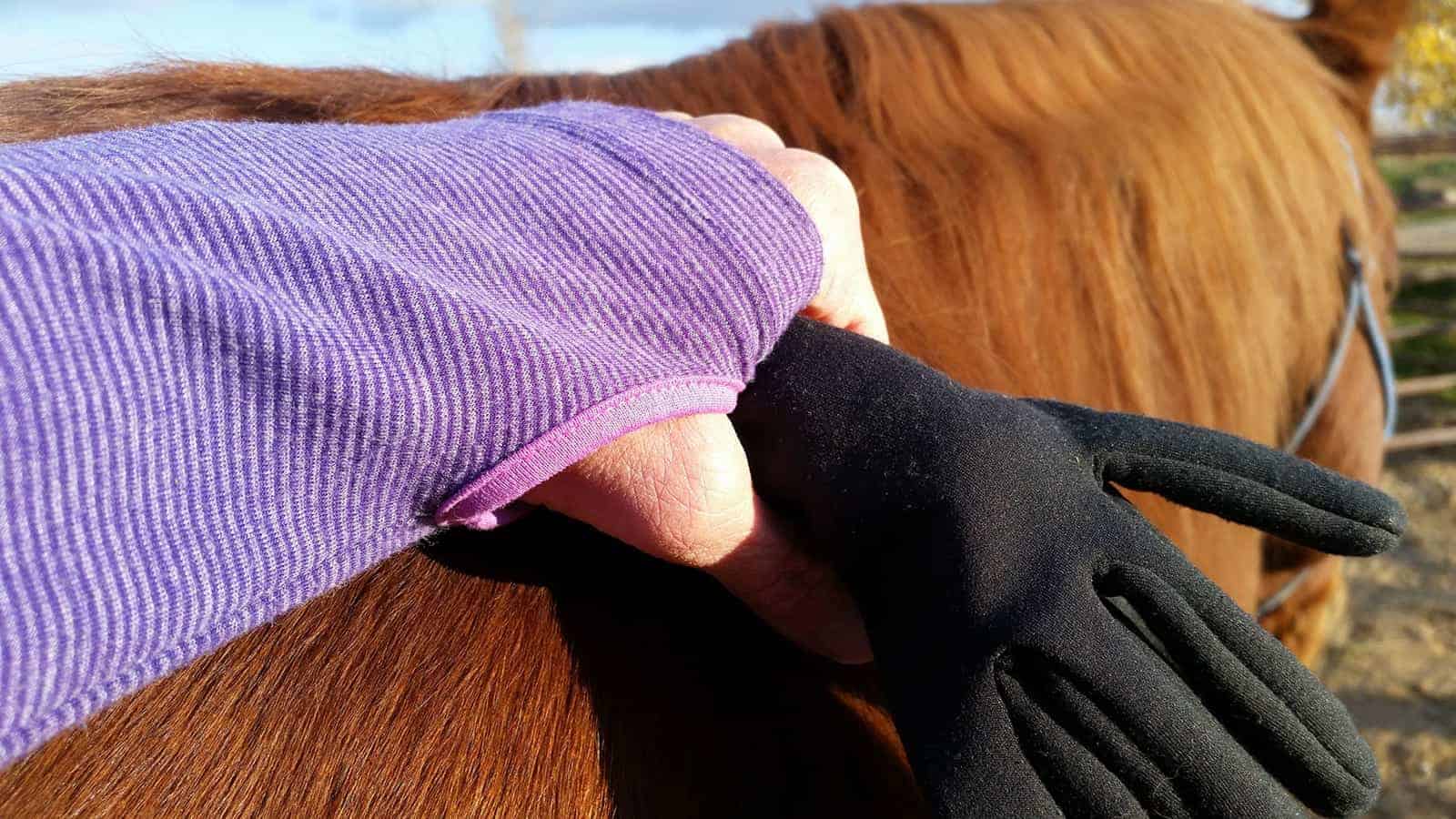
Keep Your Wrists Covered
Wrist-cuff thumbholes on your insulating or base layer keep shirt sleeves tucked into gloves for added warmth around wrists. | Photo: Alayne Blickle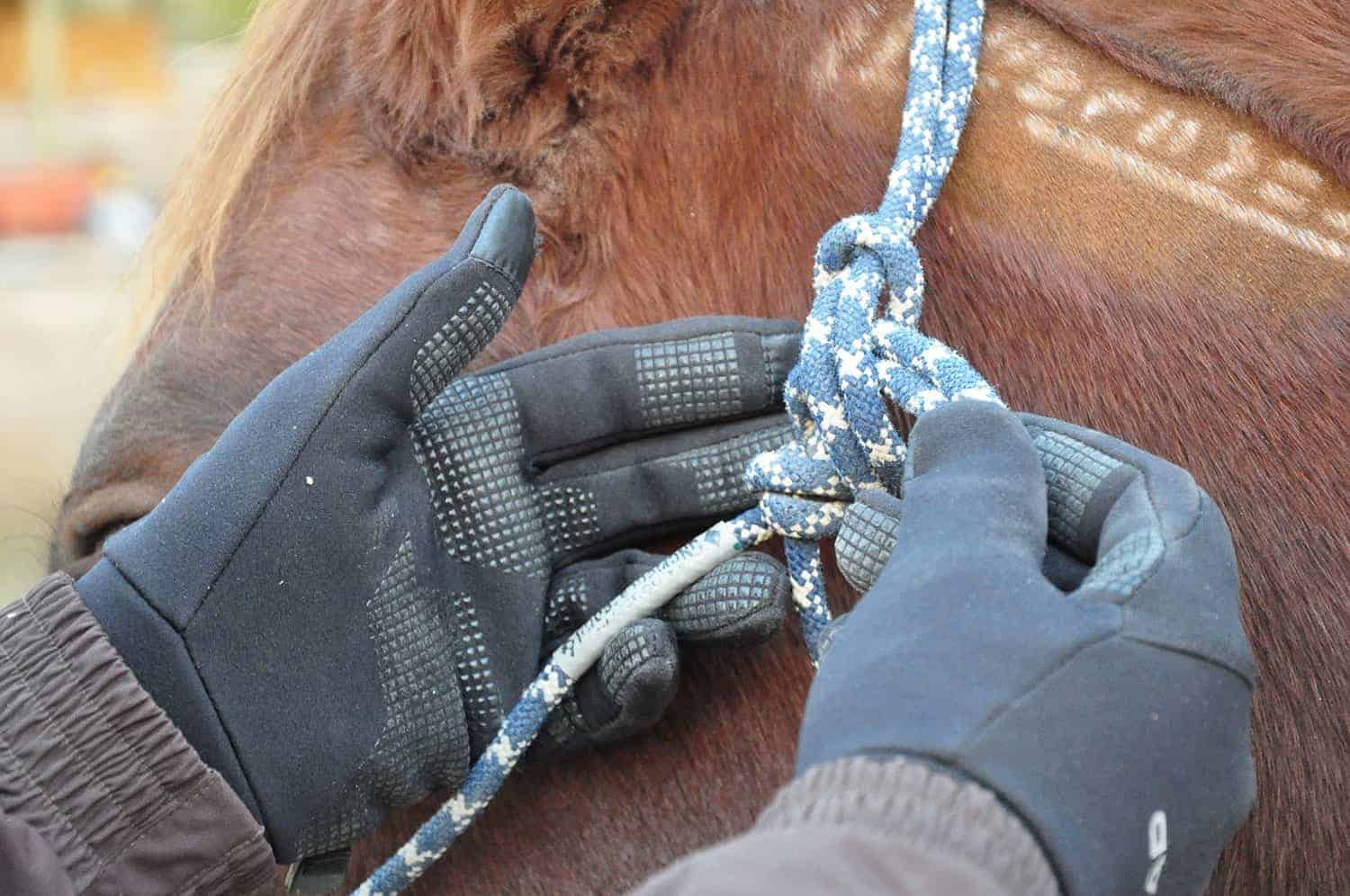
Lightweight Gloves
Lightweight runners’ gloves offer warmth with flexibility, which allows for gripping with your fingers and thumbs. They're also often touchscreen compatible. While these are excellent for riding or simple chores, they're neither waterproof nor sturdy enough for manual labor. Look for gloves with an extended cuff for extra protection. | Photo: Alayne Blickle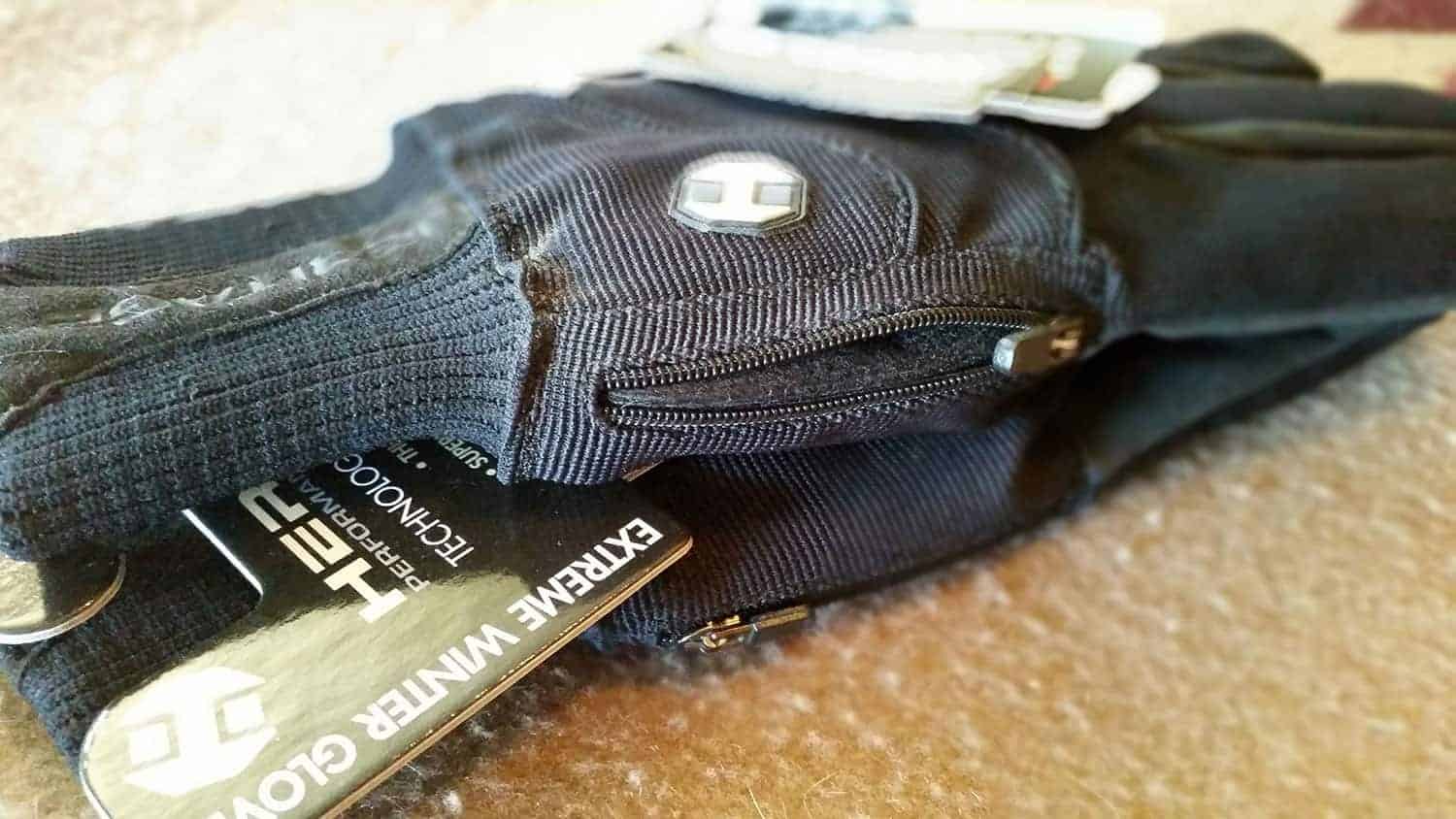
Waterproof Gloves
In rain, snow, or very cold weather look for heavy-duty, waterproof gloves made of durable materials and lightweight insulation. Some even come with pockets to insert hand warmers. Check the hunting section of outdoor stores for other sturdy options. | Photo: Alayne Blickle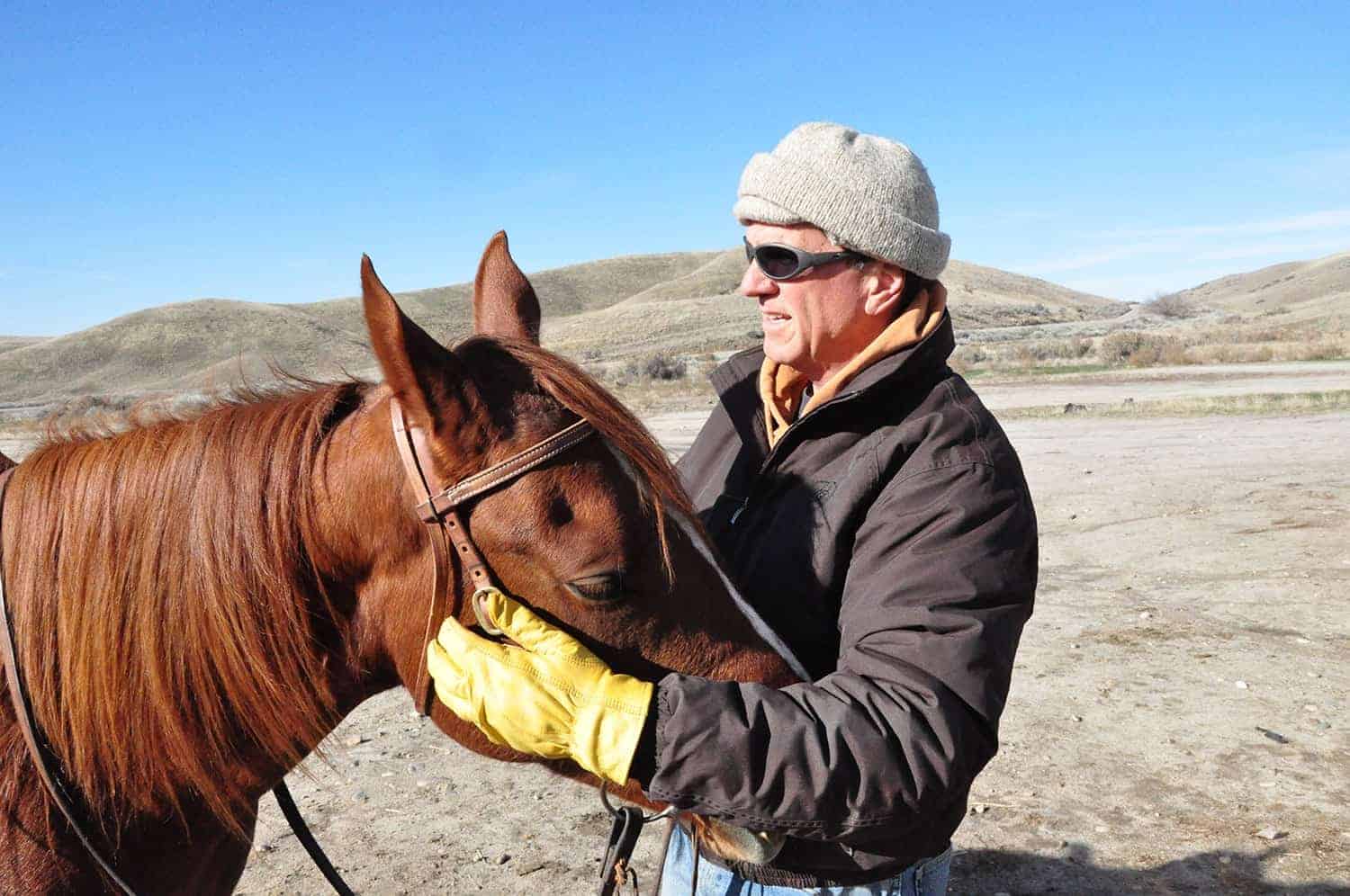
High-Tech Hats
Have a hat or hood available to keep your head and ears warm. Wool insulates even when wet and is an excellent choice. An additional fleece lining will offer your ears extra protection. Some caps even have LED lights built into them so that you can see (and be seen!) in the dark. | Photo: Alayne Blickle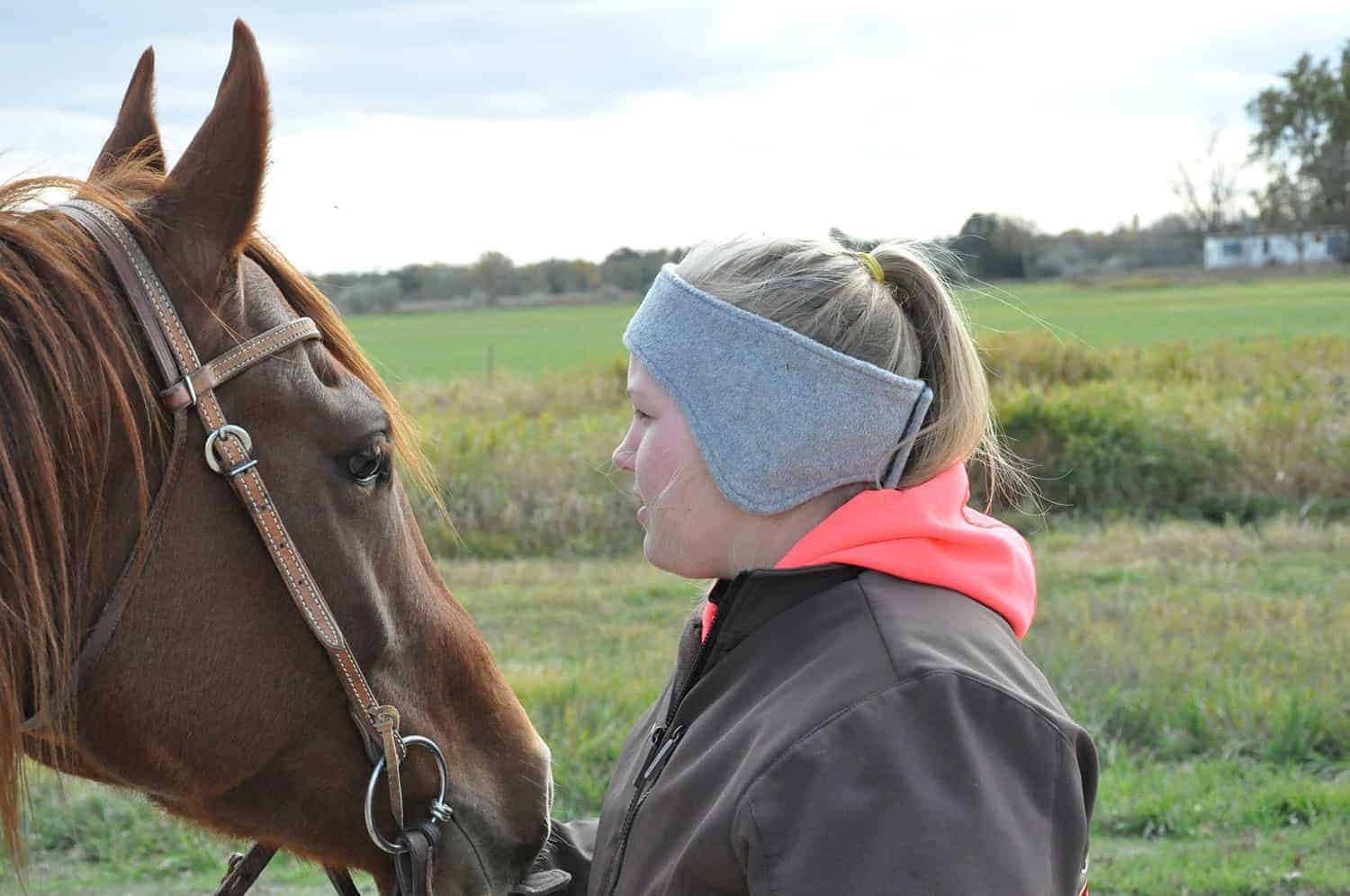
Ear Warmers
Ear warmers come in many fun varieties, some of which work well with a pony tail or under a riding helmet. | Photo: Alayne Blickle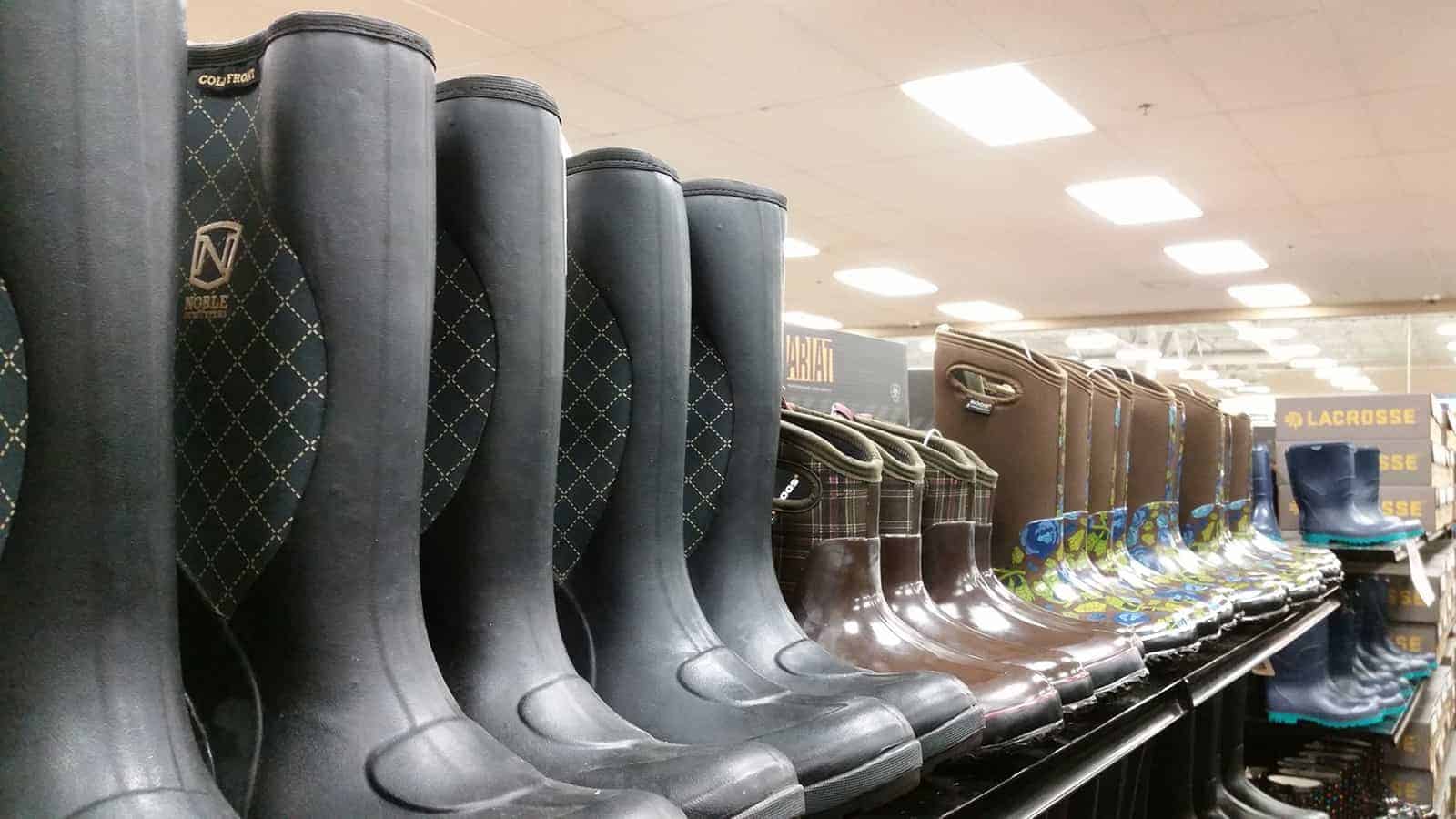
Insulated Boots for Chores and Riding
Consider investing in insulated, waterproof work boots for chores, as well as a pair of winter riding boots. | Photo: Alayne Blickle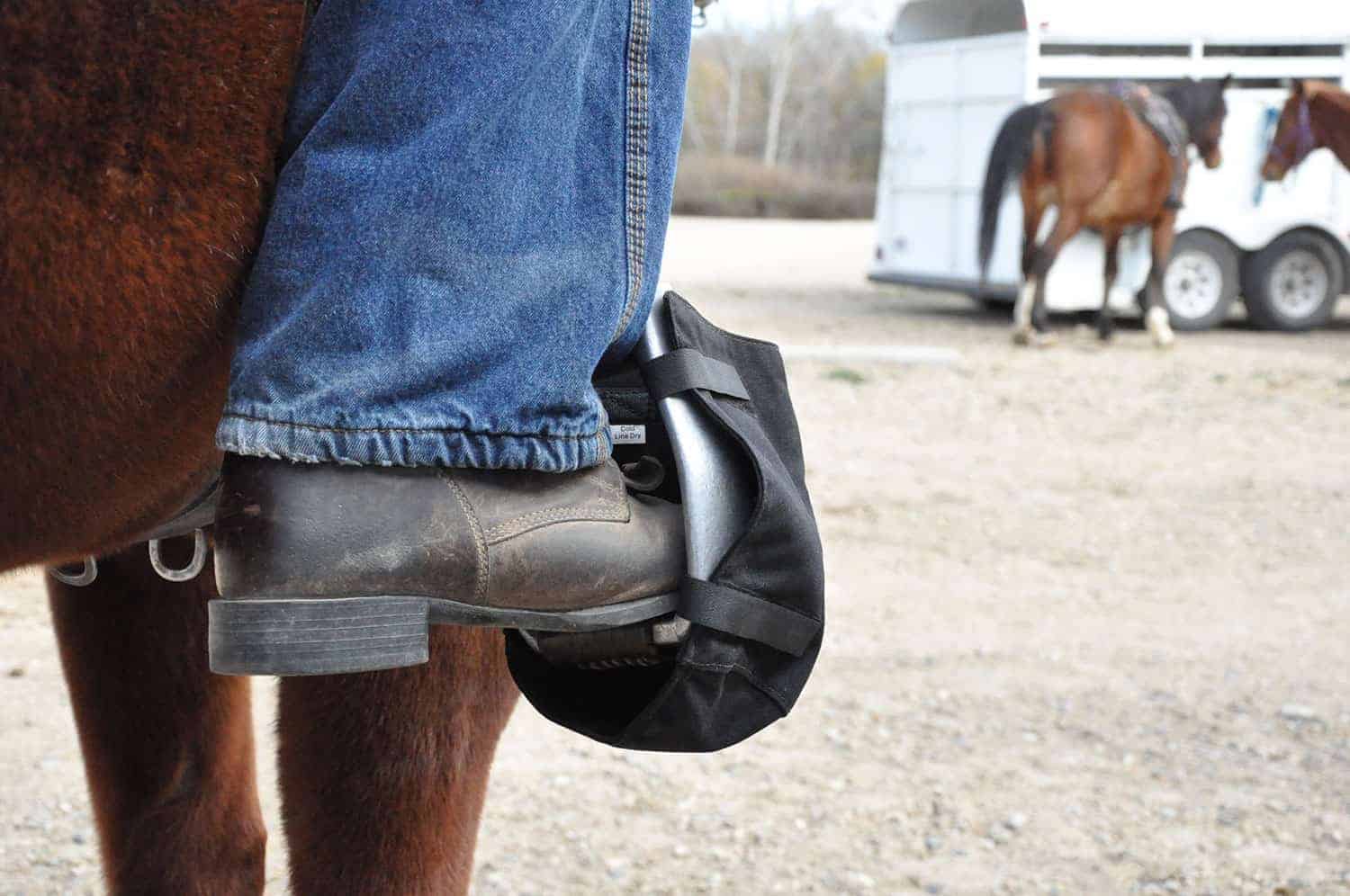
Keep Your Toes Warm
Stirrup protectors help shield toes from wind and rain for outdoor rides, keeping feet warmer longer. These are available for both English and Western stirrups. Under your boots, wear warm wool or wool-blend winter socks. | Photo: Alayne Blickle
Share

The Horse: Your Guide To Equine Health Care is an equine publication providing the latest news and information on the health, care, welfare, and management of all equids.
Related Articles
Stay on top of the most recent Horse Health news with

